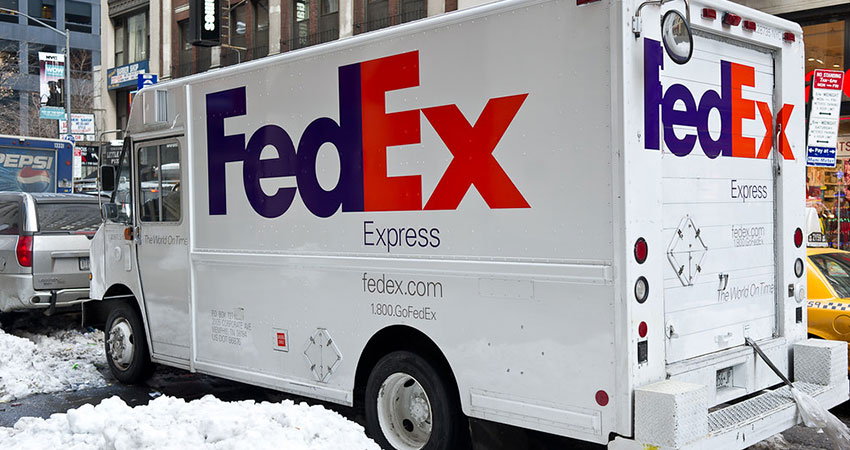FedEx delivered strong revenue and profit for the third quarter, but the latter was below analyst expectations, and volume was negatively impacted by the Omicron variant to the tune of $350 million between Express and Ground, a falloff the company said began rebounding in February.
Labor challenges hit FedEx hard in the quarter, due to the generally tough market as well as workers across units who lost time due to the Omicron variant. In January alone, the absentee rate of flight crews in the Express unit was 15%, management said.
[Related: UPS Sees Record Profit, Peak Volume Inches Up]
Net profit fell at FedEx Ground as rising costs and falling volume impacted results, while Express saw net profit rise 27% based on an increased price per package and a net fuel benefit.
FedEx also announced it was instituting a fuel surcharge across its Ground, Freight and Express effective April 4, in response to skyrocketing diesel fuel prices affecting its fleets. You can find it detailed here.
FedEx president and COO Raj Subramaniam said Ground in particular has been fine-tuned to serve B2B and SMB shippers in ecommerce, through network investment, a “differentiated portfolio and a diversified customer base.” Without naming UPS, this strategy is in contrast with FedEx’ largest competitor, whose management has stressed a focus on higher-margin deliveries under CEO Carol Tome.
“Let me note here that this strategy is different than what our primary competitor has pursued,” Subramaniam said. “By building on our current base of business and making those prior investments in our network to facilitate growth, we are in a position to generate improved operating profit and margins.”
When asked by an analyst why Ground revenue is up $17 billion since 2013, but profit only by $400 million during the same period, Subramaniam said FedEx has been investing heavily in the unit since putting a strong emphasis on ecommerce delivery, adding and margins will improve. He also called out new FedEx Ground CEO John Smith, son of chairman Fred Smith, and his performance heading up the Freight unit.
“(Over the past three years) we were working with our customers and retailers for them to succeed in ecommerce and it is a strategic relationship that we’re building,” he said. “So that period of investment, in many ways, is behind us. That pace is behind us. Now we are focused on getting revenue quality, making sure we put the right package in the right network and making sure that we generate margins and growth going forward.”
Subramaniam also addressed FedEx’s working relationship with its third-party contractors who make FedEx Ground go. Last week, a group of disgruntled contractors complained about higher-than-expected labor and truck leasing costs to gear up for a peak season package deluge that didn’t materialize.
“The entrepreneurial business model with our contractors is a win-win scenario,” he said. “It provides us the flexibility. As the market dynamics change, we remain committed to collaborating with those service providers and enable that when the lines of communication are open. So yes, we will work closely hand in hand to make sure that we are successful for FedEx and our contractors going forward.”
Overall, FedEx reported revenue of $23.6 billion, $266 million above the analyst consensus according to Seeking Alpha, while adjusted net income was $1.22 billion or $4.59 per share, below the consensus forecast of $4.65 per share, causing some investor pullback.

